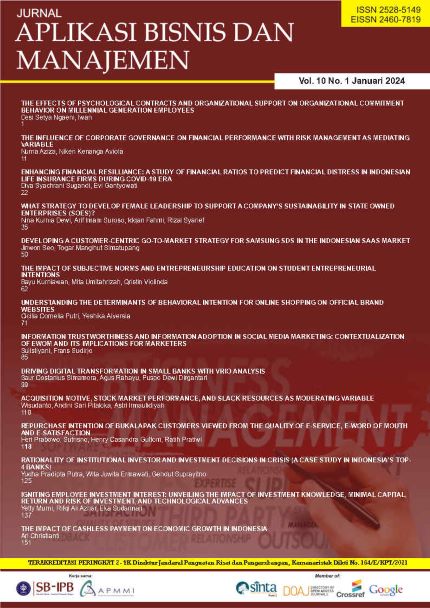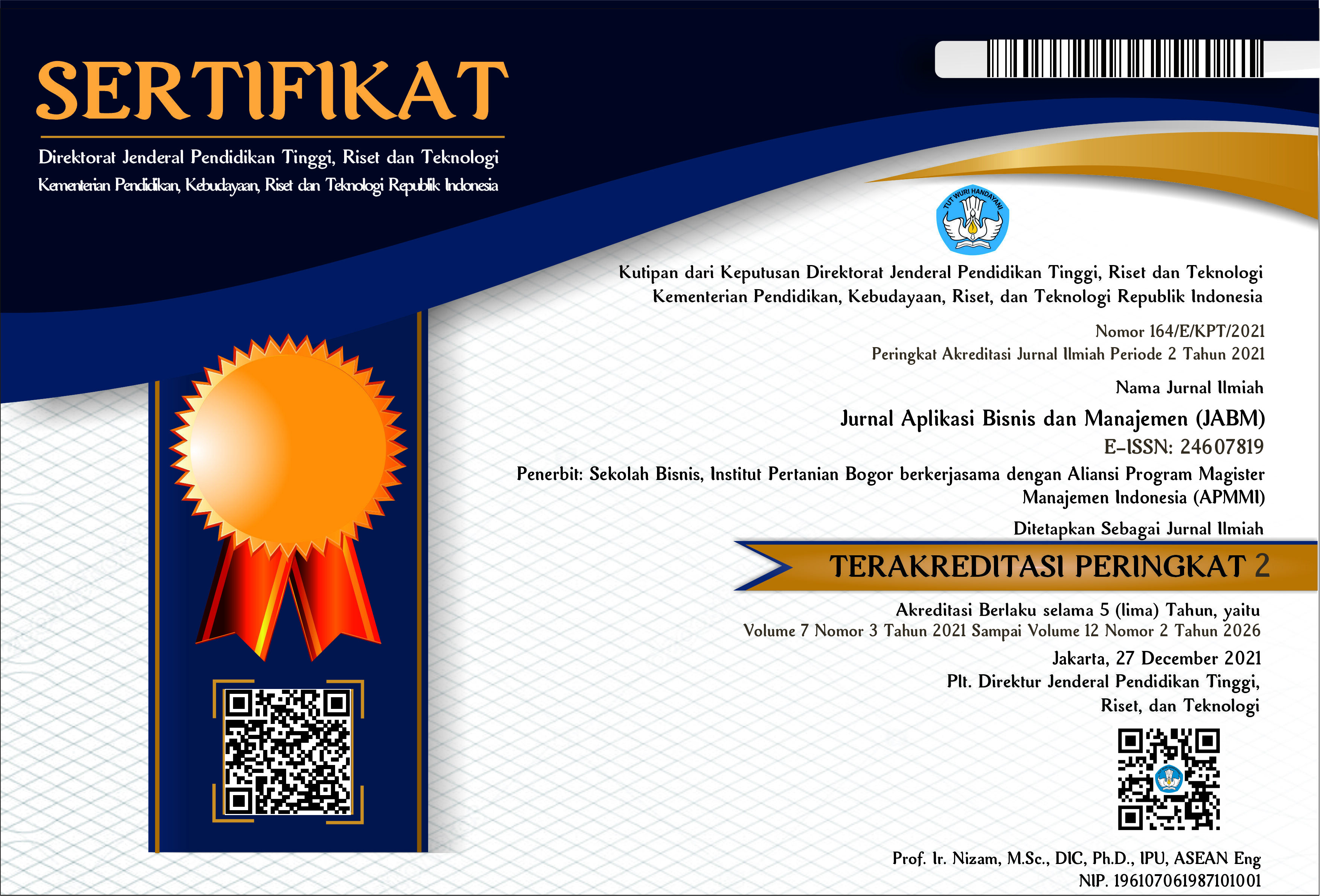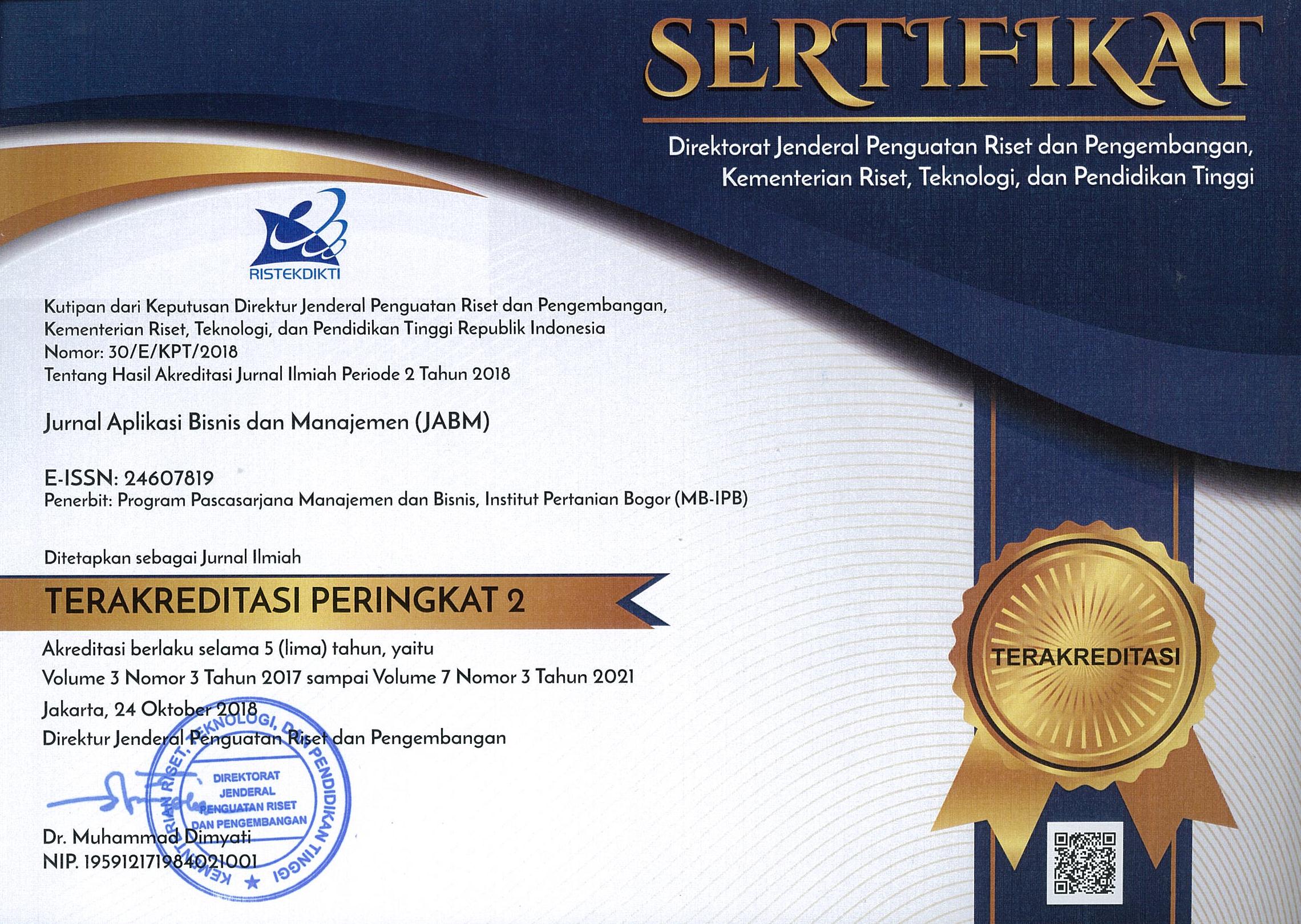Rationality of Institutional Investor and Investment Decisions in Crisis (A Case Study in Indonesia's Top-4 Banks)
Abstract
The Covid-19 pandemic triggered fluctuations on the Indonesia Stock Exchange (BEI), particularly in 2020 and 2021. Using data from 720 institutional investors from Indonesia's four largest banks (known as KBMI 4), this study aims to (1) examine the rationality of institutional investors during the pandemic by focusing on investment changes and (2) identifying variables associated with macroeconomics, financial fundamentals, and stock performance that may influence their investment decision. This study employed the Kruskal-Wallis test followed by Dunnett's Multiple Comparison Test. The analysis of the entire sample of investors revealed no statistically significant differences in the value of their investments during the observation period. Further clustered based analysis reveals that investors with high investment value (>$98,700) exhibit investment dynamics, as investment values rose from pre-pandemic levels. The conclusion is that institutional investors have a distinct rationality than individual investors and are generally less susceptible to bias. Panel data modeling: inflation rate, Loan at Risk (LAR) ratio, LAR coverage and Return on Equity (ROE) have a statistically significant impact on the stock investments made by institutional investors in KBMI 4 banks. This identifies asset quality and profitability as two crucial considerations for investors during the pandemic-induced crisis.
Keywords: behavioral finance, covid-19, determinant factors, institutional investors, stock investment








